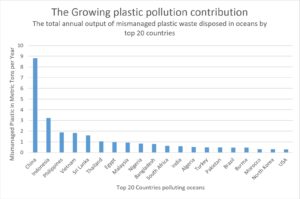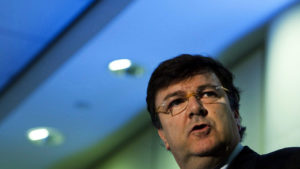Dec
05
2017
 I know, there are already so many things to worry about. It’s almost painful to hear about one more way in which we may be harming the world. Such reports are also often couched in emotional and dramatic terms.
I know, there are already so many things to worry about. It’s almost painful to hear about one more way in which we may be harming the world. Such reports are also often couched in emotional and dramatic terms.
However, it’s important to sift through the rhetoric and evaluate what the science says about what is actually going on. There is increasing reporting about the coming plastic apocalypse. We are dumping massive amounts of plastic into the environment, and some of that plastic is winding up in the world’s oceans. The world produced 343 million tons of plastic in 2014. Only 10% of that plastic was recycled. In total we have produced 8.3 billion metric tons of plastic, which does not biodegrade for hundreds of years.
The fact is, human civilization is big enough that we have to think about the effects of our massive industry. Producing that much plastic will likely have an impact on the environment. The biggest impact may be the percentage that winds up in the oceans – about 10%. Once there is just breaks down into smaller and smaller bits. Many animals accidentally eat the plastic, which can be fatal.
Continue Reading »
Dec
04
2017
 Over the last few decades the challenges we face promoting science and critical thinking have become greater, but so have the tools at our disposal. The “science of anti-science” has been progressing nicely, and we now have a much more nuanced view of what we are up against.
Over the last few decades the challenges we face promoting science and critical thinking have become greater, but so have the tools at our disposal. The “science of anti-science” has been progressing nicely, and we now have a much more nuanced view of what we are up against.
Carl Sagan was fond of saying that, “Pseudoscience is embraced, it might be argued, in exact proportion as real science is misunderstood.” That was the conventional wisdom among skeptics at the time (quote from Demon Haunted World, published in 1997) – that the problem of pseudoscience or science-denial was essentially one of information deficit. Correct the deficit, and the science-denial goes away. We now know that the real situation is far more complex.
To reduce the acceptance of pseudoscience or the rejection of real science, we need to do more than just promote scientific literacy. We also need to understand what is driving the pseudoscience, and we need to give critical thinking skills.
A recent publication of a series of studies looking at the roots of science rejection is a nice cap on this research: Not All Skepticism Is Equal: Exploring the Ideological Antecedents of Science Acceptance and Rejection.
Continue Reading »
Dec
01
2017

In 2009 an Italian neurosurgeon, Paolo Zamboni, published a controversial article in which he claimed that patients with multiple sclerosis (MS) suffered from blockage in the veins that drain blood from the brain, that this correlation was strong and the pattern suggested a causal relationship. He called his newly identified condition Chronic Cerebrospinal Venous Insufficiency (CCSVI). His article concluded:
CDMS is strongly associated with CCSVI, a scenario that has not previously been described, characterised by abnormal venous haemodynamics determined by extracranial multiple venous strictures of unknown origin. The location of venous obstructions plays a key role in determining the clinical course of the disease.
I first wrote about the resulting controversy in 2010. At the time I concluded that there was good reason to be skeptical, that there were many “red flags for crankery”, but that further research should be done to put the question to bed. There were many reasons to be skeptical, not the least of which is that an entirely vascular cause of MS went against decades of research showing that MS is an autoimmune disease. In that first article I also wrote:
Then one of two things will happen: either the new idea or treatment will fade, becoming little more than a footnote in the history of science, or a subculture will persist in believing in the treatment and will dismiss contrary evidence and mainstream rejection as a conspiracy. Which course the new idea will take seems to depend largely on the original scientist – if they accept the new evidence and abandon their claims, it will likely fade. If they refuse to give up in the face of new evidence, then a new pseudoscience will likely be born.
Well, here we are 8 years after Zamboni’s original publication. How has this drama played out?
Continue Reading »
 I know, there are already so many things to worry about. It’s almost painful to hear about one more way in which we may be harming the world. Such reports are also often couched in emotional and dramatic terms.
I know, there are already so many things to worry about. It’s almost painful to hear about one more way in which we may be harming the world. Such reports are also often couched in emotional and dramatic terms.
 Over the last few decades the challenges we face promoting science and critical thinking have become greater, but so have the tools at our disposal. The “science of anti-science” has been progressing nicely, and we now have a much more nuanced view of what we are up against.
Over the last few decades the challenges we face promoting science and critical thinking have become greater, but so have the tools at our disposal. The “science of anti-science” has been progressing nicely, and we now have a much more nuanced view of what we are up against.





